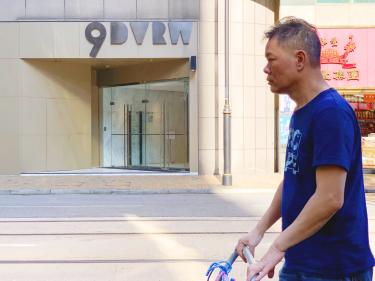A self-confessed Chinese spy has given Australia’s counterespionage agency inside intelligence on how Beijing conducts its interference operations abroad and revealed the identities of China’s senior military intelligence officers in Hong Kong, media reported.
Australian Treasurer Josh Frydenberg yesterday told reporters that the detailed accusations of China infiltrating and disrupting democratic systems in Taiwan, Australia and Hong Kong are “very disturbing.”
The Nine network newspapers reported that Chinese defector Wang Liqiang told the Australian Security and Intelligence Organization (ASIO) that he was involved in the kidnapping in 2015 of one of five Hong Kong booksellers suspected of selling dissident materials.
The incident has been a reference point for protesters during the unrest in Hong Kong.
Using a South Korean passport, Wang said he meddled in last year’s local elections in Taiwan and claimed there were plans to disrupt the Jan. 11 presidential and legislative elections.
He said he helped funnel about 20 million yuan (US$2.8 million at the current exchange rate) of campaign donations to Kaohsiung Mayor Han Kuo-yu (韓國瑜), the Chinese Nationalist Party’s (KMT) presidential candidate.
He would be the first Chinese intelligence operative to blow his cover.
“I have personally been involved and participated in a series of espionage activities,” Wang reportedly said in a sworn statement to ASIO last month.
He revealed that he was part of a Hong Kong-based investment firm that was a front for the Chinese government to conduct political and economic espionage in Hong Kong, including infiltrating universities and directing harassment and cyberattacks against dissidents.
Wang said he faced detention and possible execution if he returned to China.
He said he was living in Sydney with his wife and infant son on a tourist visa and had requested political asylum.
The Australian Home Affairs Department told The Associated Press that it does not comment on individual cases.
“The purpose of protection visas is to safeguard people who cannot return to their home country due to a well-founded fear of persecution or risk of harm,” a spokesperson said. “Each case is assessed on its merits.”
The Ministry of Foreign Affairs did not respond to a faxed request for comment on Wang. In Hong Kong, calls to the China Innovation Investment Ltd (中國創新投資有限) office went unanswered. The company was identified by Wang as a front for Chinese intelligence operations in the territory.
According to its Web site, it is an investment holding company incorporated in the Cayman Islands in February 2002 and listed on the Hong Kong Stock Exchange in August the same year.
It has investments in several companies in Hong Kong and China that are involved in energy storage products, lighting products, energy saving and media terminals.
Resource-rich Australia relies on China for one-third of its export earnings, but relations have been frosty for some time.
The Australian government has been trying to neutralize China’s influence by banning foreign political donations and all covert foreign interference in domestic politics.
“These are very disturbing reports,” Frydenberg said. “The matter is now in the hands of the appropriate law enforcement agencies.”
Source: Taipei Times - 2019/11/24





















